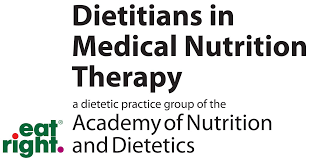What is a registered dietitian?
Registered dietitians (RD) are experts in nutrition, or the study of how the body uses food. RDs have finished at least two years of specialized coursework, spent more than 1,400 hours in intern training and passed a national board exam. Using their knowledge and skills, RDs can work in all places where people receive health care services, such as hospitals, outpatient clinics and private health care practices. They also work in school food service, government agencies and community services.
What is gastroenterology?
Gastroenterology (GI) is the branch of medicine focused on the digestive system.
What is the digestive system?
The digestive system is sometimes called the gastrointestinal, or GI, tract. The esophagus (the tube that links your mouth and your stomach), stomach, bowels (or intestines), liver, pancreas and gallbladder all make up the GI tract. These organs take in food and break it down for the body to take in nutrients and get rid of waste.
What is a GI-expert registered dietitian?
GI expert dietitians have advanced training and experience in working with patients with a wide range of digestive diseases, or health problems. Working with an RD who specializes in digestive diseases can help you better understand your condition and how food and nutrition has positive and negative impacts on your health. A dietitian can help you play an active role in taking care of your condition and controlling your symptoms.
You might read and hear abundant and often clashing news and advice on diet and nutrition. While some sources are trustworthy, many are influenced by self-interests (money, acclaim, prestige) or are not up to date on the latest medical insights. You need a trained expert with a background in gastrointestinal disorders to give you guidance on how diet and nutrition can help take care of your digestive condition.

What to expect at your appointment
During your first visit, the dietitian will:
- Review your medical history, or past health information.
- Take a dietary history by talking about what food you eat.
- Talk about any supplements, such as vitamins, that you take.
- Give you background information about your condition.
- Talk about many dietary choices to help you take care of your condition.
- Make sure any changes fit smoothly into your lifestyle and taste preferences.
Find a health care professional (Beta)
I'm looking for a ...
Locate a health care professional in your area



